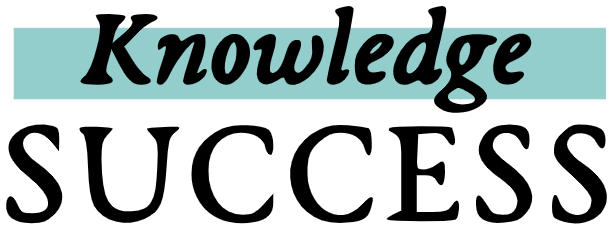
Don't miss this exciting opportunity to
highlight your FP/RH program's learnings!
__________________________________________________
The Knowledge SUCCESS project, in collaboration with the IBP Network, is seeking program implementation stories that demonstrate the integration of global best practices in FP/SRH and that address one (or more) of the following themes:
- Preparing for and responding to SRH needs in humanitarian and fragile settings;
- Strengthening health systems through primary health care, effective integration of SRH and implementation research;
- Leveraging emerging technologies for SRH, while minimizing the inherent challenges and biases they bring to ensure equitable benefits across populations;
- Cultivating multisectoral collaboration, building new alliances and revitalizing existing partnerships for stronger, collective action;
- Centering intersectionality, inclusivity and the universality of SRH to address the needs of the most marginalized populations.
The landscape of global health is continuously evolving, presenting both challenges and opportunities for advancing SRH. Emerging technologies and innovations hold significant potential for improving SRH outcomes, especially when global health practitioners learn and work together across both new and existing multisectoral partnerships to leverage these tools for effective collective action. However, as fragility from political, social, and climate-related causes increases worldwide, so do the overlapping challenges to access and utilization of SRH services—underscoring the increasing importance of SRH programs that are agile and able to provide SRH needs in fragile settings, as well as that can anticipate and mitigate any harms caused by new technologies and the ever changing global health landscape.
Through the application of global best practices, principles of locally led development, and the prioritization of intersectionality and inclusivity in SRH in programming, programs can achieve optimal outcomes. Through showcasing successful stories of SRH implementers who have achieved impactful outcomes in the above areas, these implementation stories will provide tangible examples and practical insights for other partners seeking to adopt similar approaches in their own work.
Click Here to Submit Your Experience By June 21, 2024
Why share your story?
- Amplify Your Impact and Showcase Innovation: Share your successful case study to increase visibility and recognition of your work within the SRH community, positioning your program as a leader in addressing complex challenges and advancing best practices.
- Contribute to Knowledge Sharing: Help strengthen the FP/RH knowledge base by contributing valuable insights and learnings from your program that can guide and inspire other practitioners to adopt and adapt effective approaches in their own contexts.
What Is Needed From You?
Following the submission of your story, if your entry is accepted, you will be asked to partake in a 1-hour recorded Q&A interview. During this session, we'll explore your program in-depth and request relevant photos for inclusion in the published story. Our team will then take your interview responses to draft the final implementation story, and you will have the opportunity to review the draft and provide feedback before its publication.
Additional Details:
- Program implementation stories should feature FP/RH programs based in sub-Saharan Africa, the Middle East, Southern Asia, or Latin America and the Caribbean (LAC), with preference given to projects based in USAID FP/RH Recipient Countries.
- Submitted experiences should address one (or more) of the five key themes, and demonstrate the integration of evidence-based SRH guidelines (e.g. WHO guidelines, the High Impact Practices (HIPs)) to ensure that the interventions are grounded in best practices.
- Submissions may be made in English, French, or Spanish, and selected projects will have the choice to be interviewed in English, French, or Spanish.
Apply by the June 21, 2024 Deadline!
This opportunity is made possible by the support of the American People through the United States Agency for International Development (USAID) under the Knowledge SUCCESS (Strengthening Use, Capacity, Collaboration, Exchange, Synthesis, and Sharing) Project. Knowledge SUCCESS is supported by USAID's Bureau for Global Health, Office of Population and Reproductive Health and led by the Johns Hopkins Center for Communication Programs (CCP) in partnership with Amref Health Africa, The Busara Center for Behavioral Economics (Busara), and FHI 360. The contents of this webpage are the sole responsibility of CCP. The information provided on this webpage does not necessarily reflect the views of USAID, the United States Government, or the Johns Hopkins University.
